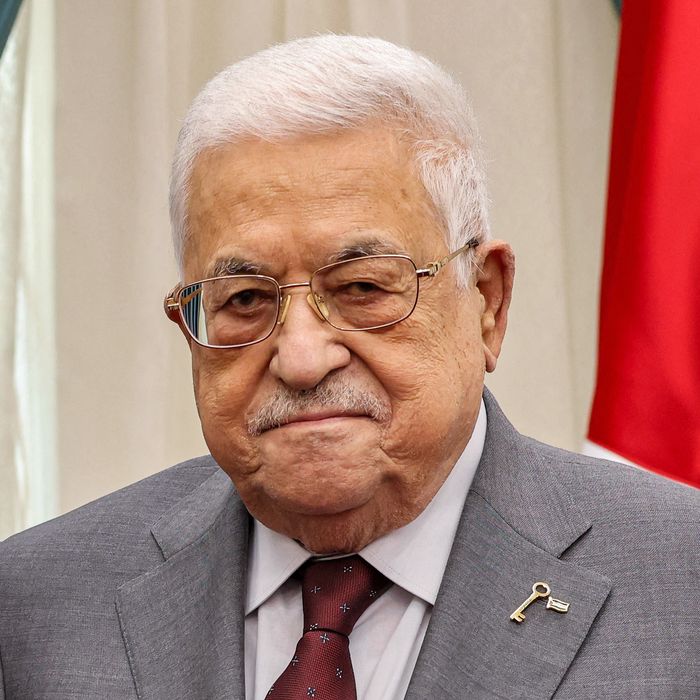Benjamin Netanyahu has taken the famous Arab proverb, “The enemy of my enemy is my friend,” to its outer limits.
The Israeli prime minister recently acknowledged that Israel has been working with Palestinian clans in the Gaza Strip antagonistic to Hamas as part of its efforts to defeat it.
In disclosing that Israel has “activated” such clans in Gaza, Netanyahu rhetorically asked, “What’s wrong with that?”
Netanyahu’s plan, which falls under the classification of old wine in new bottles, is fundamentally flawed.

He should learn from the past.
Last year, Israel reportedly contacted several prominent Palestinian clans in Gaza in the hope that they could somehow take over the administration of Gaza from Hamas. Israel’s demarche failed after Hamas assassinated several of its key figures.
Undeterred by their deaths, Netanyahu has reportedly reached out to another Palestinian figure in Gaza at odds with Hamas. Yasser Abu Shabab, the commander of a small armed group in Rafah known as the Popular Forces, apparently has received weapons from Israel.
Shabab denies having obtained arms from Israel, but his denial is suspect. Obviously, he does not want to be seen as an Israeli collaborator, particularly at a moment when the Israel-Hamas war is still raging, the entry of humanitarian aid into Gaza is demonstrably uneven, and Palestinian civilians are being killed in droves at food and water distribution points.

Israel’s decision to court Shabab is problematic. He appears to be a shady individual, having been accused of looting and reselling truck loads of humanitarian assistance at exorbitant prices. He denies this accusation and implausibly claims that his only motive was to feed his family. Witnesses insist that he and his men have seized tons of aid meant for ordinary Palestinians beset by hunger.
According to reports, Hamas recently confronted Shabab and killed his brother, as well as twenty members of “gangs of thieves who were stealing aid.”
On the basis of such information, Avigdor Liberman, the former Israeli defence minister, and Yair Lapid, the opposition leader in the Knesset, have criticized Netanyahu’s overture to Shabab. Liberman, who served under Netanyahu, accused him of authorizing the transfer of weapons to Shabab’s “criminal gang.” Lapid, the ex-prime minister, said, “The weapons going into Gaza will eventually be pointed at Israeli soldiers and civilians.”

Netanyahu’s tactic is foolhardy and a perfect example of short-sighted thinking.
Shabab’s Popular Forces, with only several hundred foot soldiers at its beck and call, is no match for Hamas, which is still a relatively formidable force despite a series of military setbacks since 2023.
And on moral grounds alone, Israel should not be dealing with a militia leader whose reputation, such as it is, has been stained by accusations of theft from United Nations aid convoys.
Netanyahu’s outreach to Shabab reminds observers of previous Israeli miscalculations.
From the late 1970s until 1984, Israel attempted to undermine the legitimacy of the Palestine Liberation Organization by forming “Village Leagues” in the West Bank. This tactic came to naught.
During the same period, Israel funded, armed and trained the South Lebanon Army, which was under the leadership of Saad Hadad, a former Lebanese army officer. The SLA was supposed to be a counterweight to Hezbollah, but it was nothing of the sort, judging by Israel’s unilateral withdrawal from its self-declared security zone in southern Lebanon in May 2000.
More recently, Israel thought it could appease Hamas by allowing hundreds of millions of dollars from Qatar to flow into Gaza to fund infrastructure projects, pay the salaries of civil servants, and feed the hungry. As we all know now, this scheme backfired. Hamas hijacked some of these funds to build a military machine and construct a maze of attack tunnels.
Clearly, Israel should not fall into this trap again.
Instead of backing a disreputable character like Shabab, whose power base is limited and whose reliability is questionable at best, Israel should seriously readjust its position toward the Palestinian Authority, led by Mahmoud Abbas.
Netanyahu has been hostile toward the Palestinian Authority in spite of its consistent security cooperation with Israel. His dismissive attitude is largely due to his rejection of a two-state solution, which Abbas favors and promotes.
Since Hamas’ October 7, 2023 massacre in southern Israel, most Israeli Jews have been skeptical of the notion of Palestinian statehood. Their skepticism is understandable in light of the trauma generated by this unprecedented atrocity. But now may be the time for Israel to rethink its policy with respect to the Palestinians and a two-state solution.
While the Israeli army should temporarily retain security control of Gaza after this war finally ends, Israel should refrain from occupying this congested coastal enclave. Nor should Israel allow Jewish messianists to reestablish settlements in Gaza. This would be a mistake of gigantic proportions.
Israel should instead engage the Palestinian Authority in talks on Gaza’s future. After all, they are both on the same page insofar as Hamas is concerned. Abbas, in a recent letter to French President Emmanuel Macron and Saudi Crown Prince Mohammed bin Salman, wrote, “Hamas will no longer rule Gaza and must hand over its weapons and military capabilities to the Palestinian security forces.”
In this letter, Abbas belatedly condemned Hamas’ October 7 attack and called for the immediate release of Israeli hostages in its captivity. He said he is prepared to cooperate with Arab and international forces to stabilize Gaza under a United Nations Security Council mandate.
In addition, Abbas indicated he is ready to sign a peace agreement with Israel that “resolves all outstanding and final status issues.”

Abbas also said he has no objections to U.S. demands to reform and revamp the Palestinian Authority and hold presidential and general elections “within a year” under international auspices.
It would not be in Israel’s best interests to dismiss Abbas’ statement. Israel will be much better off negotiating with the Palestinian Authority rather than supporting and propping up Shabab’s Popular Forces.
